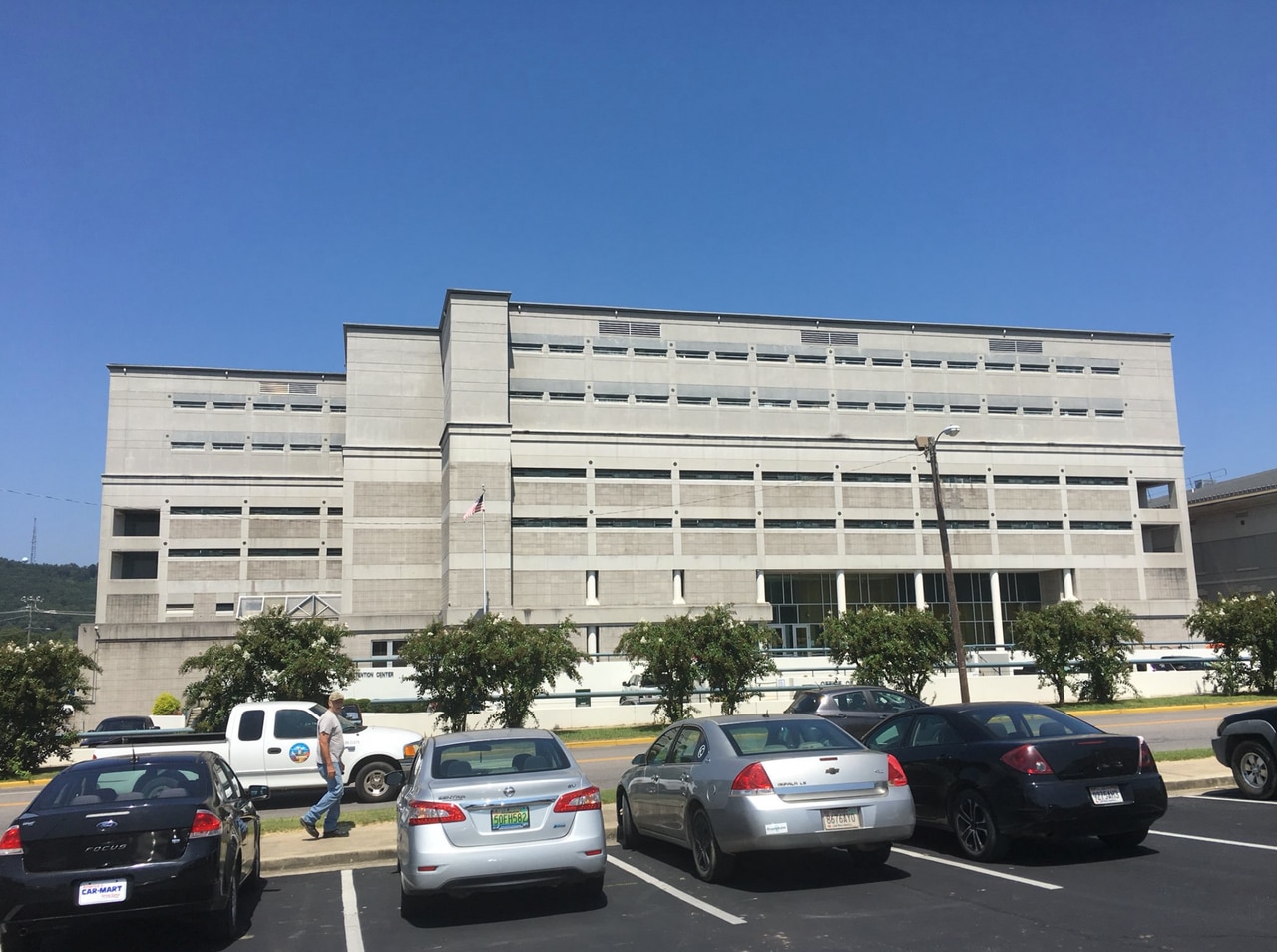Alabama woman sues, claims she was forced to give birth in jailhouse shower
A north Alabama woman gave birth unassisted in a jailhouse shower after corrections staff ignored her cries for help, according to a lawsuit filed today.
Ashley Caswell had her baby on Oct. 16, 2021, after 12 hours of painful labor, according to the lawsuit, which was filed in federal court. Caswell, who was in jail in Etowah County for using drugs during pregnancy, suffered a placental abruption that almost led to her death. Jail staff looked on as she bled and even took pictures of Caswell and her baby before calling for medical help, according to the suit.
Caswell sued Etowah County Sheriff Jonathan Horton, Chief Keith Peek, chief of administration, Doctor’s Care Physicians, CED Mental Health Services and several members of the medical and correction staff at the jail. It was filed by attorneys from Pregnancy Justice, the Southern Poverty Law Center and the law firm Sullivan & Cromwell.
“Ashley is the latest victim of the Etowah County Jail, which consistently punishes pregnant women in the name of protecting ‘unborn children’ while simultaneously endangering their lives,” said Pregnancy Justice Senior Staff Attorney Emma Roth in a statement. “They stripped her of her dignity, violated her constitutional rights, and again showed their callous disregard for mothers and children. The abuses and violations are numerous, and there is simply no word to describe what she endured other than ‘torture.’”
A spokesman for the Etowah County Sheriff’s Department did not immediately respond to requests for comment.
For years, law enforcement officials in Etowah County kept pregnant women accused of drug use behind bars for months until they could be released to rehab. The practice ended after Al.com reported on legal challenges filed last year.
Earlier this year, Al.com wrote about the county’s abnormally high number of chemical endangerment cases against pregnant women. County officials have said they are trying to protect babies from exposure to drugs, however attorneys from Pregnancy Justice and former inmates have described deplorable conditions and inadequate care for high-risk pregnancies. Caswell recalled her unmedicated labor in messages to Al.com earlier this year.
“I delivered my own son and had to beg for help,” she wrote.
Prior to delivery, Caswell slept on the floor of the jail on a thin mattress and could not get the regular medication she took to treat PTSD and depression, which was withheld by the staff, according to the lawsuit. She also suffered from high blood pressure and other risk factors that complicated the pregnancy. The complaint said she did not receive adequate care during the seven months of her pregnancy she spent behind bars.
Caswell spent 12 hours in active labor, according to the lawsuit and jail staff walked her to a shower in the medical area when she started bleeding profusely, but refused to help as the baby began crowning. The complaint says that soon after she had her baby and handed him to jail staff, Caswell passed out from blood loss.
Caswell, who has been arrested several times for chemical endangerment, is currently serving a 15-year sentence at Tutwiler Prison for Women.
Pregnant woman in the Etowah County Jail received inadequate medical care and faced poor conditions, the lawsuit says. “In recent years, Defendants’ conduct has resulted in many other pregnant women at ECDC receiving grossly inadequate pre- and postpartum care, or, in many instances, no care at all,” reads the suit.
AL.com this year wrote about other mothers in the jail, including Ashley Banks, who was arrested on suspicion of using marijuana early in her pregnancy and spent months behind bars. Banks had a subchorionic hematoma, a condition where blood pools near the wall of the uterus that can increase the risk of miscarriage.
The complaint says another woman lost her pregnancy after staff refused to take her to the hospital after her water broke several months before her due date. Another woman included in the lawsuit gave birth in the medical unit after jail staff ignored her requests to go to the hospital.
The lawsuit claims the jail’s medical contract discouraged the staff from providing medications or seeking emergency care because it could reduce profit.
